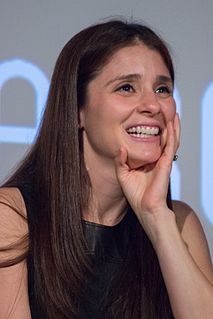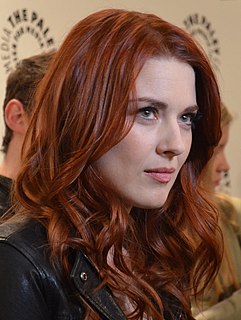A Quote by Mike Flanagan
We always try to leave room for the actors to come in and make discoveries on set, in their interpretation of the scene. The shot list is scaffolding.
Quote Topics
Related Quotes
Because of the way that I work with the actors and because a scene is not in this rigid and literal interpretation of something written, I can constantly change stuff, which means I can get a scene absolutely perfect, and then when we go to shoot it, the requirements of the shot mean it would be useful to extend the dialogue or take a line out or swap things around. So the camera doesn't serve the action. The action serves the camera. That's important. So it becomes more and more organic and integrated.
Do you have your own room, Charlie Brown?" "Oh, yes... I have a very nice room." "I hope you realize that you won't always have your own room... Someday you'll get drafted or something, and you'll have to leave your room forever!" "Why do you tell me things like that?" "It's on a list I've made up for you... I call it, Things You Might As Well Know!
I think one of the things you have to be aware of as an actor is that if you come on the set and see the director standing there mouthing all the words while a scene is going on, that's usually a very bad sign because it means the director has already shot the scene in his head. He knows exactly the rhythm and the nuances that he wants delivered in the line and you're not going to dissuade him.




































